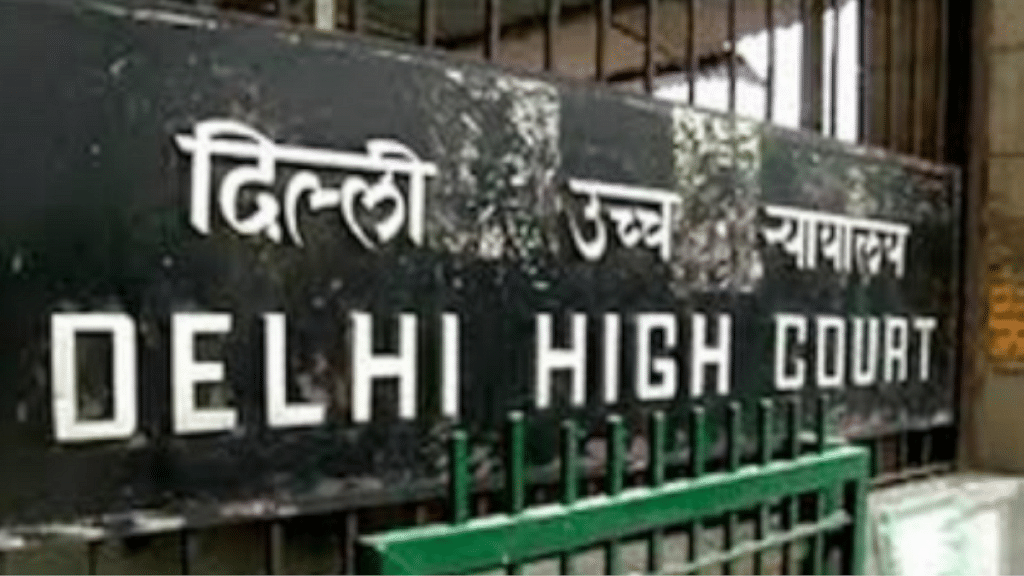New Delhi: The Delhi High Court is considering switching to wall and ceiling fans from centralised air conditioners, according to the minutes of the meeting conducted Tuesday by a high court-appointed committee.
The committee, comprising Justices Hima Kohli, Vipin Sanghi, Rajiv Shakdher and Talwant Singh, has been holding deliberations on a “graded action plan” to meet the challenges likely to be faced by it and trial courts once they begin functioning as normal after the lockdown is lifted.
On Tuesday, the committee considered whether the central air-conditioning plant in the high court should be run after the lifting of the lockdown.
The committee was briefed by two Public Works Department (PWD) officials, who said that even if the court incurs a massive expenditure to install devices to kill germs, it might not guarantee stopping the spread of the coronavirus.
The officials informed the committee that the Supreme Court has also not switched on its central air conditioning system so far. They then suggested that court instead procure pedestal fans/wall fans, and if possible, ceiling fans.
The committee has now directed officials to conduct a survey on this and submit a proposal on the quantity of fans that may be required.
“Since the windows and doors of court building may be required to be left open for proper circulation of air during the working hours, PWD shall ensure that all such windows have proper net/mesh so that no insects/mosquitoes etc. enter inside the court building,” the minutes of the meeting stated.
Additionally, PWD has been asked to procure two moveable cleaning devices, which cost Rs 4.5 lakh each, for disinfecting files, books, walls and other surfaces.
Also read: Start-ups and AI can rescue choked Indian courts
Pool testing for staff and visitors
District and Sessions judges have been directed to create facilities for video conferencing in their respective districts for lawyers who cannot appear through video conferencing from their homes or offices.
As for court staff coming to the court to facilitate video conference proceedings, the committee resolved that these officials should, as far as possible, visit the court on a rotation basis.
A sanitisation machine, which takes body temperature and dispenses sanitisation liquid, will also be installed at the main entrance of the Delhi High Court. All district courts have been directed to get cleaning devices and sanitisation machines as well.
Additionally, the Registrar General of the court has been ordered to get in touch with the Director General of Health Services, and check if pool testing for Covid-19 can be conducted for staff members and visitors.
Further, the committee resolved to increase the number of single benches from four to six “in order to cope up with the rush of urgent matters”.
Also, lawyers visiting the high court or lower courts in Delhi have been exempted from wearing coats, bands and ties.
Also read: ICMR advises ‘pool testing’ in low-infection areas to increase number of Covid-19 tests
Gradual opening of family courts
Family courts in Delhi, which have so far not been functioning at all, will be directed to start taking up matters through video conferencing.
The committee said that cases in which arguments have already been heard and the order has been reserved, should be given priority. Non-urgent/ routine matters will also be permitted to be filed online, with the rider that it would be taken up for hearing as and when the normal and regular functioning of courts resumes.
In case the lockdown is extended, all matters, except for petitions under section 13-B (2) Hindu Marriage Act (requiring a six-month waiting period for divorce by mutual consent) and final argument matters of more than five-year-old cases, have been ordered to be adjourned.
The family courts are expected to dispose of all such final argument matters and should ask parties to send point-wise submissions in a maximum of five pages in PDF format.
In the next phase, the committee resolved that pending or new urgent applications, seeking maintenance, custody, visitation rights, petitions under section 13B(1) Hindu Marriage Act (divorce by mutual consent) and ex parte matters shall be taken up through videoconferencing.
Tutorials on the features and use of e-filing have been directed to be prominently displayed on the website of family courts and Delhi District Court. All concerned, including counsellors and stenographers have been asked to be trained on using the Cisco WebEx software.
Also read: From virtual benches to entry curbs — how SC and Delhi HC will work after lockdown
